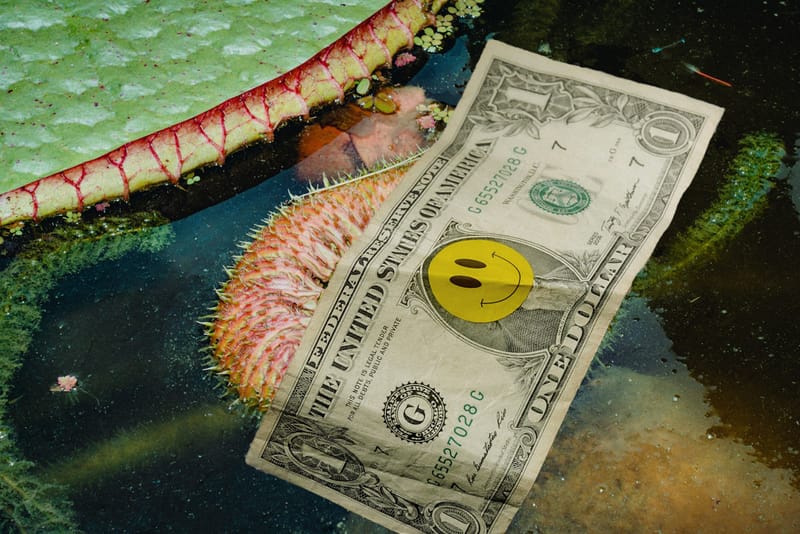Failla Has Hot Takes For All Parties In Last Tornado Cash Pretrial Conference
In Tuesday's pretrial conference, judge Failla stated that she made Mos Eisley jokes about Tornado Cash – a fictional city in the Star Wars universe known for "scum and villainy".

Editor's note: this article was originally published with a headline referring to a joke Judge Failla stated to have been making about the Tornado Cash prosecution. We updated the headline as we believe it took away from the seriousness of the topic.
- Judge Failla made jokes about Tornado Cash as a haven for criminals in Tuesday's pretrial conference intended to determine what evidence will be permissible at trial.
- Failla is disallowing the defense from arguing interpretations of federal money transmission laws, including issues of control, fee structures, and for-profit business orientation.
- Free speech and privacy rights issues are not expected to be discussed. The trial is expected to last "at least four weeks."
Update July 12th, 9am: Judge Failla's chambers have not responded to a request for comment asking to clarify the joke.
On Tuesday, parties in the criminal case against Tornado Cash developer Roman Storm met for another pre-trial conference discussing what evidence and expert witnesses would be admissible at trial.
Judge Failla stated that she would not allow testimony to the generally legal use of Tornado Cash, unless it serves the direct rebuttal of Government allegations on Storm's state of mind while designing the Tornado Cash service. The Government will be presenting evidence that Tornado Cash was used "in large part" by criminal actors.
Free speech and privacy rights are not expected to be discussed. Failla will disallow the defense from making arguments on the interpretation of money transmission laws concerning control over funds, fees, and for-profit business models.
The Fifth Circuit's sanctions reversal on Tornado Cash software, known as Van Loon, will only be allowed if the Government brings it up first. Similarly, Failla has banned the use of the terms "AML" and "KYC" for both parties, as the Government is no longer pursuing federal registration violations.
Storm's jury trial begins next Monday in the Southern District of New York's Pearl Street court house. He is charged with conspiracy charges on sanctions evasion, money laundering, as well as a charge on operating an unlicensed money transmitter, and could face more than four decades in prison if convicted on all counts. The trial is expected to last "at least four weeks."
A Place for Scum and Villainy
As part of the evidence, the Government plans to argue that Tornado Cash was "used in part, at times in large part by hackers," while Failla states to have presumed that it was "predominantly used by bad actors" according to the indictment.
"My law clerk and I have been making [...] Mos Eisley jokes about the idea of like a haven for criminals," Failla said at the conference.
Mos Eisley, a fictional city in the Star Wars universe, is known as a lawless, dangerous spaceport full of smugglers, bounty hunters, and criminals. "You will never find a more wretched hive of scum and villainy," Obi-Wan Kenobi warns Luke Skywalker in the films.
Notably, Failla expressed skepticism of the Government's victim statements which the Government plans to use to demonstrate the illegitimate use of the service, highlighting that to her understanding, none of the victims could actually confirm that their funds went into Tornado Cash.
"I think it's a very careful path the government's going to have to walk, because I don't think, for example, I'm going to allow a witness to testify that their third-party service told them it was Tornado Cash," Failla stated.
The Government plans to corroborate the statements with testimony from the investigating officer, who traced the funds on chain. Here, Failla expressed skepticism as well.
Blockchain Analysis on Trial, Again
Special Agent Joel DeCapua of the FBI's Cybercrime Investigations Unit plans to testify to 31 hacks which allegedly involved fund movements through Tornado Cash, some of which he appears to not have personally investigated.
"I don't know what special sauce he is adding to this information that allows him to speak to the remaining hacks," Failla stated. "You say to me that Agent DeCapua applied his specialized knowledge in cryptocurrency tracing to synthesize and interpret the data verifying the connection between public reports and blockchain activity. [...] It still sounds like hearsay to me."
According to the Government, prosecutors were "intrigued" by the criminal case against Roman Sterlingov, the convicted operator of the early Bitcoin mixer Bitcoin Fog, where "the Court permitted an expert for [sic] chain analysis to testify about the results of a proprietary algorithm that incorporated hearsay," but stated "we don't go near that far. We have much more transparent testimony from an individual expert who can explain how he applied his expertise to identify these particular exploits."
Failla ultimately denied the defense's motion to exclude Agent DeCapua's testimony from trial. "I am convinced by the government's proffer today that what Agent DeCapua is doing is synthesizing and not merely conveying hearsay."
Failla Bans the Words "Legal" and "Lawful" from Testimony
In the hearing, Judge Failla decided that the words "legal" and "lawful" would not be allowed to be used by testifying witnesses, while stating that examples of lawful uses of Tornado Cash would still be admissible to rebut the Government's evidence "regarding Mr. Storm's mental state in designing, maintaining, and controlling Tornado Cash."
"I don't intend to allow any witnesses to use words like legal, illegal, legitimate, illegitimate, licit, illicit. [...] You might be able to persuade me that some percipient or expert witness has, if you will, a legitimate reason to use that, but I just don't see it," she stated.
"I'm fine if you want to ask your witness why people might like privacy or why certain things exist, and what are uses of certain tools or protocols within Tornado Cash or something else," Failla continued.
But "this idea of everybody – it's [Tornado Cash] only used for – or generally used for legal reasons or that kind of stuff, no. No. I'm just not going to allow it. So, please – and if your witness has actually testified to it, I'm very likely to stop their testimony and let them go. So please don't let them do it," Failla continued.
Similarly, Failla denied the Government's motions to dismiss Matthew Green a defense expert witness, co-designer of ZCash and professor for cryptography at Johns Hopkins University, stating that "his testimony regarding privacy features can be reliably applied to the facts of the case," but that she would not let him testify to legal and legitimacy issues.
"I'm just telling you the words criminal, illegitimate, illicit, they're not coming out of his mouth. They're not."
No Discussions on the Interpretation of Money Transmission Laws
"I really don't want to hear control issues, or there must be fees and 'for profit'," Failla told the defense, who relied on interpretations of federal money transmission laws in previous motions to dismiss. These issues "are not going to show up in this trial, because they are not."
The decision aligns with an oral ruling last October, where Failla stated that "a control requirement is not in the statute and this court is not going to read it in." To the contrary, leading legal scholars have highlighted that interpretations of control over funds and business operations are central to the Government's burden of proof in obtaining a conviction.
FinCEN and the Bank Secrecy Act are "Irrelevant"
Failla stated that testimony on the applicability of the Bank Secrecy Act, a law governing anti-money laundering processes such as know-your-customer (KYC) frameworks, is "irrelevant, unless perhaps in an advice of counsel defense."
The defense noted that it was concerned that the Government may "make it sound like it [KYC] was required". "If they do, I'll stop them," Failla responded, discouraging the Government witness from bringing up KYC and AML at all.
"I don't think KYC or AML should come out of the man's mouth. [...] "If they do, then we start having to talk about the degree to which the defense expert gets to talk about the regulatory structure under the BSA that you are not charging him with."
Failla additionally warned the Government that "you [...] are walking a really fine line" with the operating an unlicensed money transmitter charges, "not to mention the craziness of what the charge looks like" after the Government chose not to pursue federal licensing violations.
Failla is "not letting [the defense witness] talk about regulatory requirements unless the government opens the door, and his testimony about FinCEN regulatory requirements is not permitted in light of the government dropping the (b)(1)(B) theory."
However, she could "conceive of a possibility that in an advice of counsel context [...] that Mr. Storm's knowledge of FinCEN guidance, knowledge of certain regulations may be admissible as probative of his intent maybe."
No Issue of Free Speech
Failla stated that she doesn't think that "free speech or First Amendment issues should be coming up at this trial," adding that "if he testifies, Mr. Storm can discuss his beliefs about the importance of privacy."
Ruling to proceed the case to jury trial last October, Failla had ruled against Storm, who relied on computer code as an element of free speech.
"The functional capability of code is not speech within the meaning of the First Amendment,” Failla stated in the oral hearing – an opinion that relied on outdated case law, as argued by the advocacy group CoinCenter, which found that "of all of the types of speech to consider [...], Storm’s Tornado Cash software actually seems the most likely to advance the values served by the First Amendment."
Sanctions or no Sanctions?
Failla is disallowing the defense any mention of "Van Loon," referencing the Fifth Circuit's reversal of sanctions against the Tornado Cash software. At the same time, she is discouraging the Government from mentioning the Office of Foreign Asset Control's (OFAC) sanctions against Tornado Cash.
In a back and forth, the Government argued that the OFAC sanctions are necessary to the trial to demonstrate Storm's consciousness of guilt: "He started Googling prison facilities, because of the announcement of those sanctions [...] the fact that these sanctions triggered his consciousness of guilt concerning all of his criminal activity is what makes them so relevant in this trial."
"Mr. Arad," Failla addressed the prosecutor, "I'm going to make clear again, if OFAC sanctions come in, their withdrawal comes in, too," not seemingly convinced of the necessity of bringing up the OFAC sanctions at all, describing them as "the consciousness of guilt of something he wasn't ultimately guilty of."
"I don't think it's appropriate for us to be suggesting or for you to be arguing that he was conscious of guilt for the OFAC sanctions in August '22 when they later got withdrawn," Failla stated. "I'm very concerned that a jury could confuse what he's conscious of – what guilt he's conscious of."
Independent journalism does not finance itself. If you enjoyed this article, please consider making a donation.






